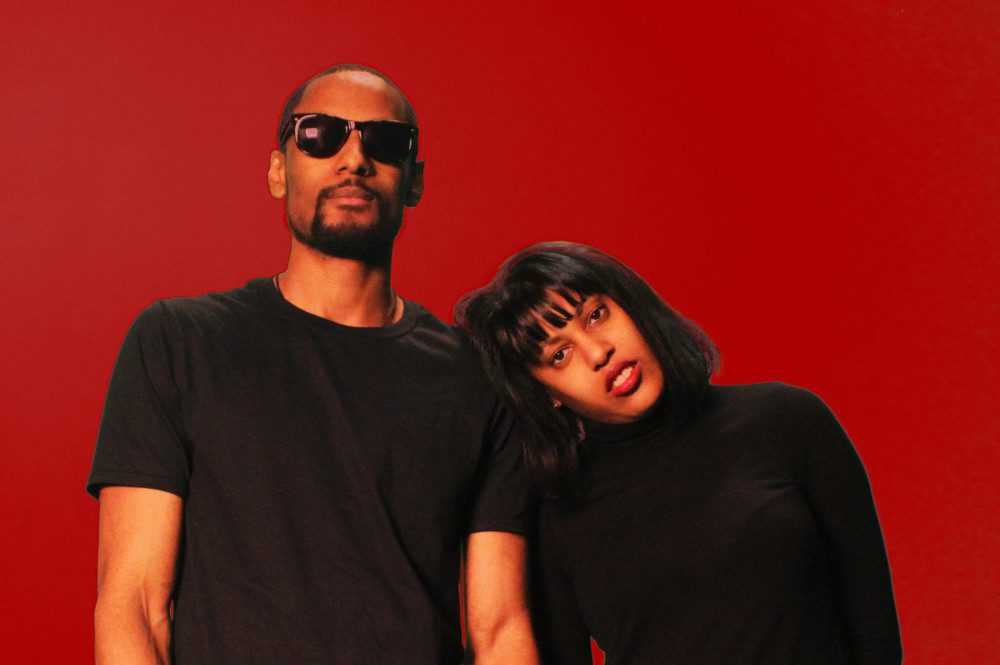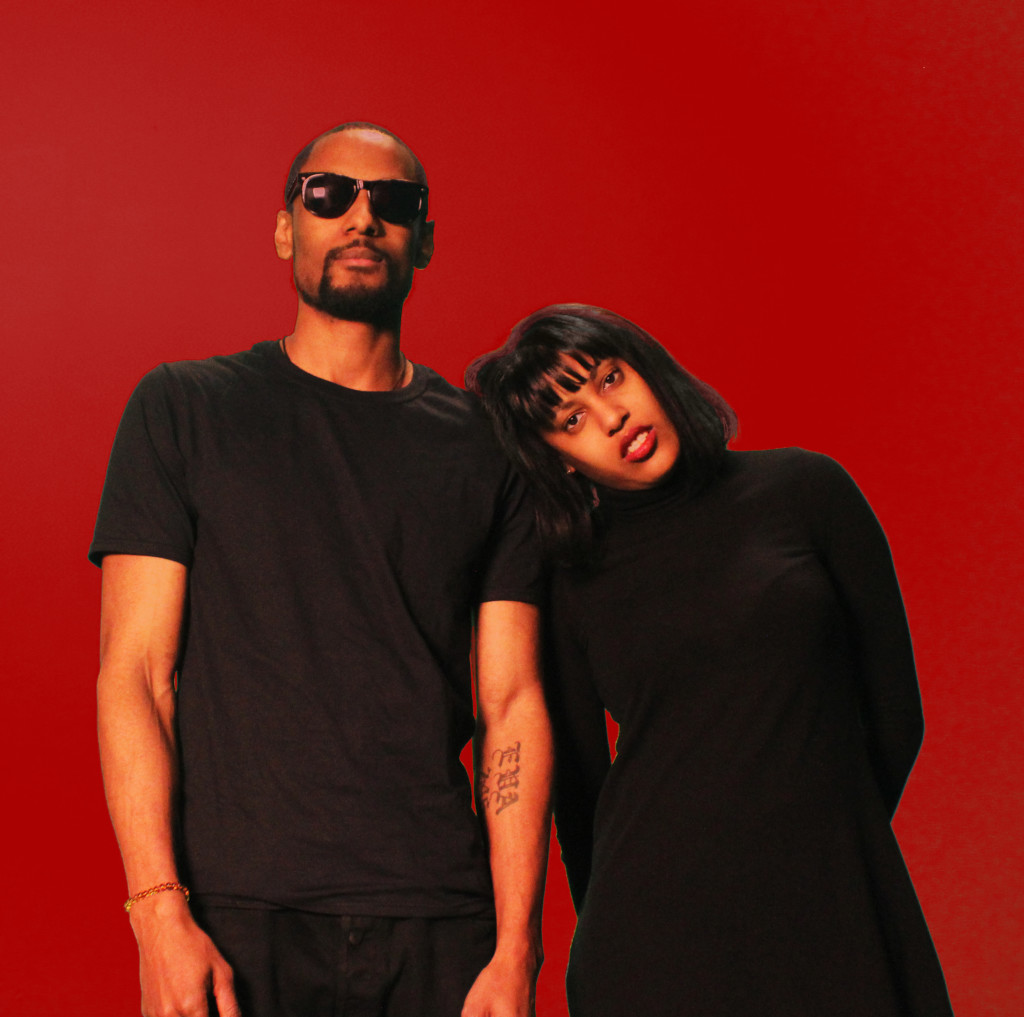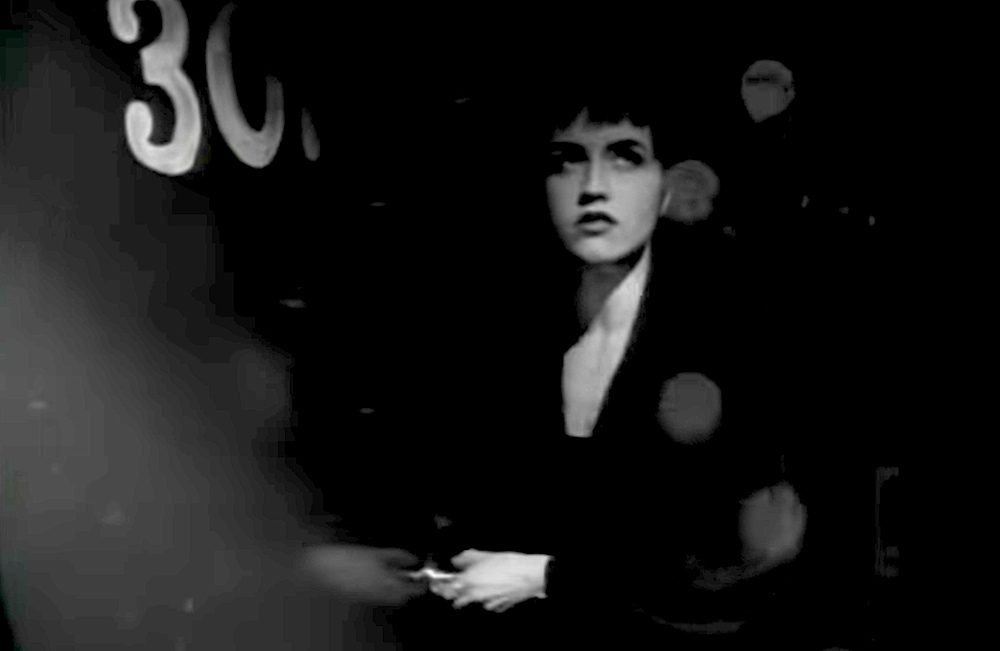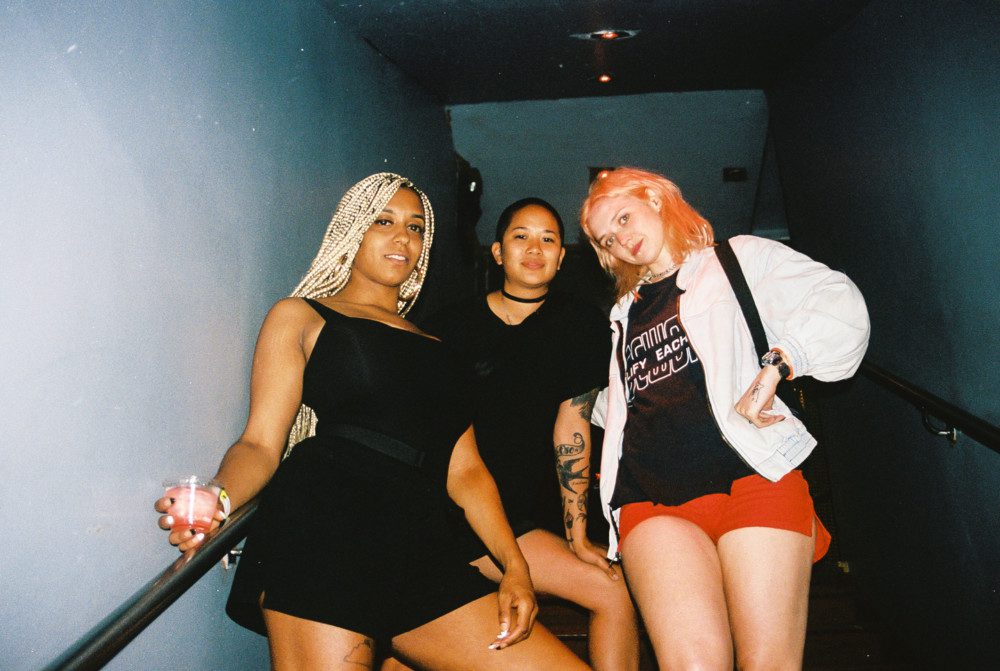

Brother and sister rock ‘n’ roll duo The Black Tones are all about rewriting Seattle rock history, and playing their asses off in the process. Their latest LP, Cobain and Cornbread, draws on the Seattle music and cultural aesthetic but puts the diversity and innovation back into the style. As the newest host of KEXP’s Audioasis, lead guitarist and singer Eva Walker is tasked with keeping a finger on fresh Seattle sounds, and says representing marginalized voices is her main priority in her new role. But even before that, Eva and her twin Cedric, who plays drums in the band, took every opportunity – in interviews, on stage, and in their music and lyrics – to point out POC contributions to rock ‘n’ roll, all too often forgotten now that the genre is dominated by mostly white musicians.
Ahead of The Black Tones’ release show at Chop Suey for Cobain and Cornbread, Eva chatted with Audiofemme about the upcoming album and what it’s like to see some of her wildest dreams – like working for KEXP and opening for Thunderpussy – come true.
AF: Did you and your brother play music together as kids?
EW: I mean we played with toys? But, we didn’t start playing music together until after Cedric saw me play at a Folklife Festival performance in 2008. Then, I started giving him drum lessons.
AF: Did that lead to The Black Tones?
EW: There would basically be no Black Tones without Cedric. He saw me perform and was like “she needs a band, she needs someone to back her up.” He wanted to do it.
AF: So what did the timeline look like—when did the band form?
EW: We started drum lessons on our birthday in 2008—and we did that for a summer and then that fall we started The Black Tones. We’ve had member changes since then—the most consistency in the band is me and Cedric. We’ve decided, “You know, it’s me and you and we’ll just hire people to play with us.” We are the closest and most reliable to each other.
AF: Like Steely Dan.
EW: Haha, yeah!
AF: What were some goals you had for Black Tones when you started the band?
EW: Just to play together and have music and hope that some people would like it. Cedric was newish to the [Seattle] music scene, but I had been doing it for a while so I knew a little bit more about the scene. I mean, I knew about KEXP and would often be like “Man, it’d be cool to do that.” I remember being like—if we play on KEXP one time I’ll be happy. It never has to happen again. And then, we got into rotation and then I got hired to be DJ. But, in the beginning it was more about playing shows and enjoying ourselves. And it’s been going really good!
AF: You mentioned having a little knowledge of the local community – what role does Seattle play in getting The Black Tones established?
EW: Yeah, there are a lot of successful people coming out of Seattle that have been so supportive and awesome to us. I mean, I had a friend who did lights for Mary Lambert and she asked me, “Do you know Thunderpussy?” When I got home I looked them up and was like—these girls are so cool! It’d be so cool to play with them, but it’ll never happen, blah blah blah, you know.
And then we actually got to [play together], and at the freakin’ Showbox on New Year’s Eve of all places! They said that when they were looking for someone to open for them at The Showbox they kept coming back to The Black Tones. I was like, “Are you guys freakin’ kidding me? That’s so goddamn flattering, you guys don’t even know!” I didn’t even know we had their attention or anyone else’s! It’s hard to see when you’re on the other side.
AF: I think people also struggle to see around the stereotypical definition of rock n’ roll. What are some misconceptions about rock ‘n’ roll that you like to set straight?
EW: I don’t do it as much as I used to—mostly because I’ve said a lot of this stuff in interviews and I think people got it—but [when I share my perspective on black history in rock] it’s mostly coming from the past [when] I was being told “it’s so white that you like rock ‘n’ roll music,” or “you’re like the whitest black girl I know.” So, it was just me combating all those things I was told because, that’s a lie.
Everyone thinks that rock history is this —it’s Elvis or whatever. I think it’s really interesting. I read this interview where George Clinton mentions how white rock radio stations don’t play all-black rock bands. They had to funk-ify themselves to get notoriety. I don’t know what it is about an all-black rock band that weirds out white rockers or white radio stations. I mean, we’ve been called a soul band and R&B—and I’m like, dude, we fuckin’ just play rock ‘n’ roll.
AF: Tell me about the new album Cobain and Cornbread. What are some underlying themes that drive it?
EW: We’re very family-oriented, so that helped inspire the name. We were at a show in Bellingham and someone asked “what’s your sound?” and I was describing the sound. I was like we’re full-blown Northwesterners, we were all born here, but my mom and everyone else is from the south—Louisiana. So as Northerners raised by Southerners, we’re sort of a hybrid of soul and rebellion. Sort of like the combination of Kurt Cobain and cornbread! Literally that night we were like, “oooh, that’s going to be the name of the record.”
AF: Why Cobain—is Nirvana near and dear to you?
EW: I love Nirvana, don’t get me wrong, but if I were to choose “my” grunge band—I’m an Alice in Chains girl. But “Layne Staley and Cornbread” doesn’t really roll off the tongue. And so, the name “Cobain and Cornbread” is supposed to represent more mascots—like when you think about Seattle in the ’90s and grunge, you think of Kurt Cobain even though me and some other friends think that Jimi Hendrix is the original founder of grunge. But I mean, “Hendrix and Cornbread”? A lot of times, when people think of Hendrix they think of Seattle’s music but they don’t think of the aesthetic of the Northwest—that’s more Cobain with the flannels and the long hair. So it was more about the aesthetic.
AF: What about the cornbread part? How does that connect to the South for you?
EW: When we think of the south, we think of soul food. Those people can eat and cook! So, I wanted to have some sort of a food meaning.
AF: Are there southern music influences on the album?
EW: There’s definitely blues influence in our music and writing in general. With our family being Southern it sneaks itself in there.
AF: Did you both write the songs on Cobain and Cornbread?
EW: I had a lot of the songs pre-written before I gave Cedric drum lessons. So, after he got lessons I said – “Hey, want to try this song?” But, even though I usually write the lyrics, I would say that it’s always a collaboration, as far as like when we start jamming and stuff. However, I would give more credit to Cedric for our song “The Key of Black.” He initiated that drum rhythm.
AF: What sets this release apart, in your eyes, from your last release?
EW: This one is more representative of the current band sound and what we are. And working with Jack Endino as a producer was the icing on the cake because he made some of these songs sound way better than I thought they would sound. He has such a scientific ear—I don’t even know if that makes sense— but he’s like a chemist behind a soundboard.
AF: Tell me a little about your new position at KEXP?
EW: So, I saw that Audioasis was looking for a new DJ. And originally, my fiancée Jake Uitti was looking at the job and then decided “Nah, I’m not going to do it.” Then, I was talking to a friend, and they were like “DO IT!” But I kept putting it off and I was like, they’re not going to hire me. I decided on the last day of applications to submit mine. They called me and asked to do an interview and I freaking hate job interviews. I guess they liked me though because they hired me!
AF: What happened when you found out?
EW: They called me while I was at Doe Bay playing a festival, and they were like “We want to give you the job!” And I was like “Aaahh, really?” And I couldn’t tell anyone for three weeks. Like, how do you keep that a secret? You’re the new host of Audioasis on KEXP, responsible for finding new artists!
AF: What are your goals with the show?
EW: I’ve been trying to highlight more underrepresented voices—and that’s in the POC community and in the transgender community, or wherever else. I did an episode for Womxn’s Day, and I had all POC and transgender women—voices who felt like they haven’t been heard. So, I’ve been doing things like that, and honestly, trying to play more genres. We’ve got enough indie rock here to last us—so I’ve been trying to get more hip hop music, more country music, and I need to do a better job with reggae and metal. I honestly want to play everything because I think the Pacific Northwest is more than this indie rock thing with some electronic stuff. There’s way more to it than that.
I’m also trying to get into prisons, because I think that’s an underrepresented population and my dad was in prison. My dad said that music helped him bridge the gap between sanity and isolation. I want to go into prisons and record some of the work they’ve done, stuff like that. Talk about an underrepresented population—like, all the stuff we talked about like human rights, sexual assault, racism applies to them. The prison population can’t really defend themselves, and who makes up most of the prison population unjustly? POC people. It’s a population I feel a responsibility for reaching out to… and they’re supposed to be [in] rehabilitation, or correctional facilities.
AF: When can people listen to Audioasis?
EW: Saturdays from 6pm to 9pm live and people can stream it around the world at KEXP.org.
AF: How about Cobain and Cornbread? When can we hear the whole album?
EW: April 11th is the release show for Cobain and Cornbread at Chop Suey, and we have Page Turner and Black End opening for us. They’re all groups fronted by black females. They’re all pretty new so we thought—why not take the time to introduce some new artists? Then, the album officially drops on Friday, April 12th.




